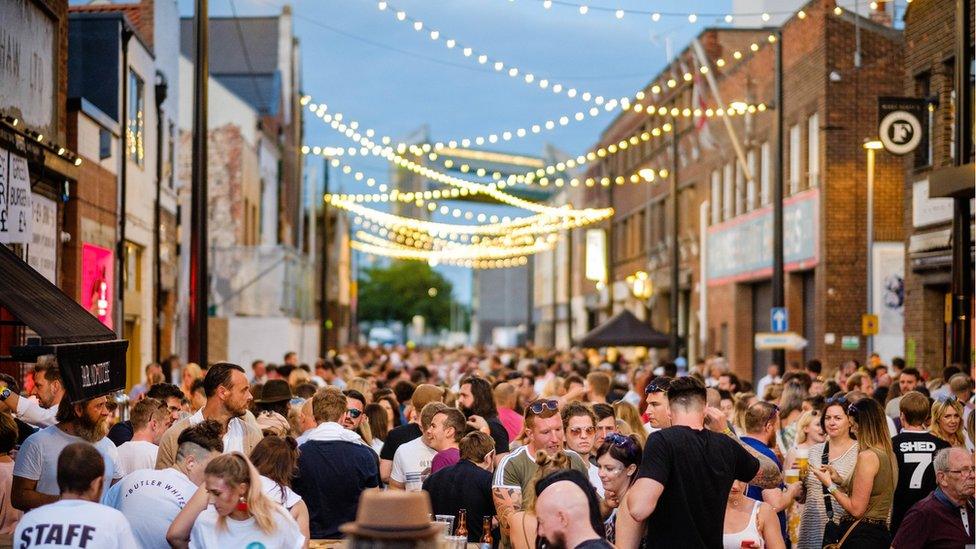Humber Street Sesh celebrates 10 years of grassroots music
- Published

About 15,000 people are expected to turn out for the 10th Humber Street Sesh in Hull Marina
Thousands are due to attend Hull's biggest music festival as it celebrates its 10th anniversary.
Humber Street Sesh, which showcases grassroots and local musicians, is based at the city's marina and attracts music fans from across the UK.
It has taken place every year since 2012, but was cancelled in 2020 due to Covid and a smaller spin-off event took place in 2021.
Organisers expect 15,000 people to attend on Saturday.
Director Mark Page said things had changed considerably over the last decade.
"From when we started to where we are now, it's a completely different beast," he said.
"It's quite unique to what goes on across the rest of the country.
"It gives the public a sense of confidence in the city that we can put on these large-scale events and bring everyone together for a good time."
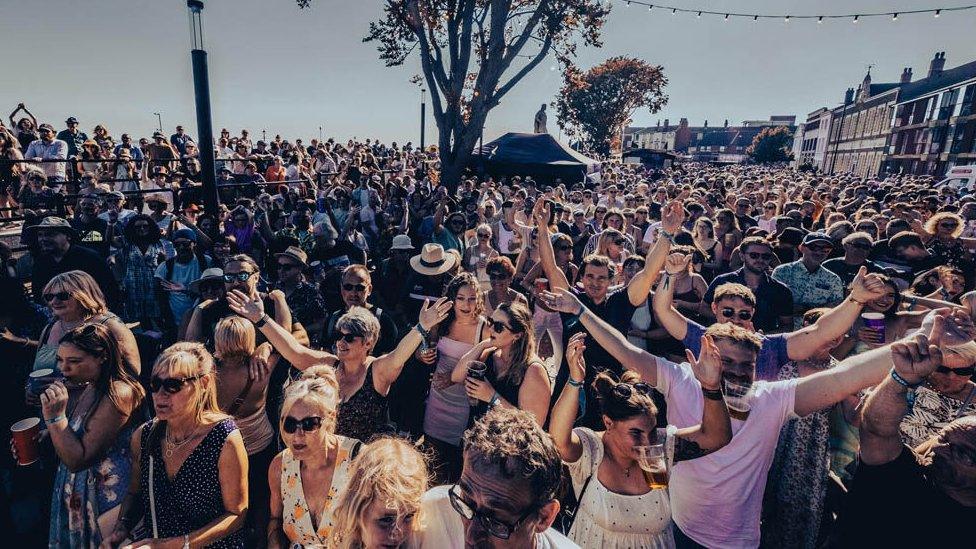
Revellers from as far as Scotland and Cornwall have attended the festival, organisers say
The festival has grown from its humble beginnings in 2012 - born out of a weekly gig night called The Sesh - when 10,000 spectators turned out for the first free one-day outdoor event.
The following year attendance figures shot up to 40,000, which resulted in organisers opting to turn it into a paid event.
It enabled them to afford additional security measures and other infrastructure as the event grew.
Mr Page said more than 2,000 bands had performed since the festival began and attracts people from all over the UK.
"That speaks volumes for local tourism and the economy, and the wealth of talent we have within the region," he said.
It is not just the chance to highlight music, Hull City Council believes the festival has resulted in 200 jobs in hospitality and security.
The council's head of culture, place and city centre Kath Wynne-Hague said it was a "powerful festival" for the city.
"You have the secondary spend from the cafes, the restaurants to the travel to the hotels," she explained.
She said the event also encouraged the city's vibrant music scene and "emerging talent".
"Some of the best local bands go on to be really high profile in different spaces and places."
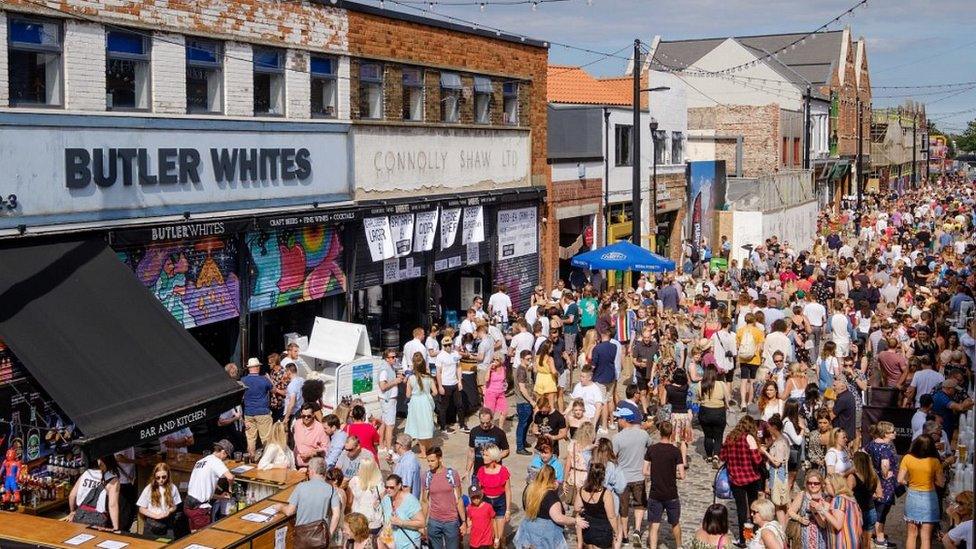
Hull City Council believes the festival makes a major contribution to the city's economy
However, the impact of the pandemic, ongoing A63 roadworks and the development of Queen's Gardens has meant a scaled-down event this year.
"Hopefully by 2025 and thereafter we might be able to do something quite special in the city centre as well as the marina," Mr Page said.
"We've sort of earmarked a few sites across the city centre which we feel could play a big part in a bigger festival.
"If the financial support is there... then we can rival any city in the country and put on a major festival where we can attract 50,000 to 100,000 people over a couple of days."
Mr Page said despite the current economic climate pushing up costs, ticket prices had been kept the same and they were maintaining their aim of reducing the use of single-use plastic.

Follow BBC East Yorkshire and Lincolnshire on Facebook, external, Twitter, external, and Instagram, external. Send your story ideas to yorkslincs.news@bbc.co.uk, external.
Related topics
- Published13 August 2022
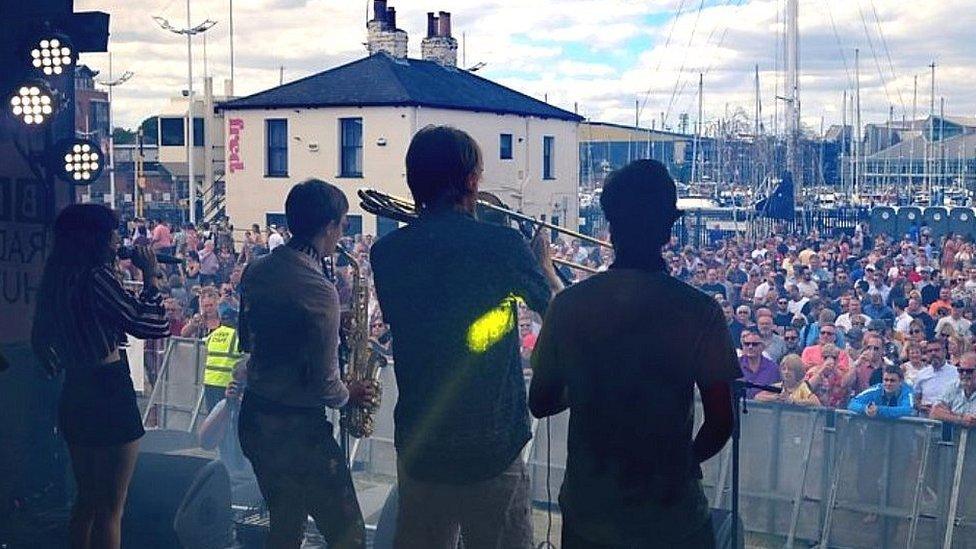
- Published4 August 2021
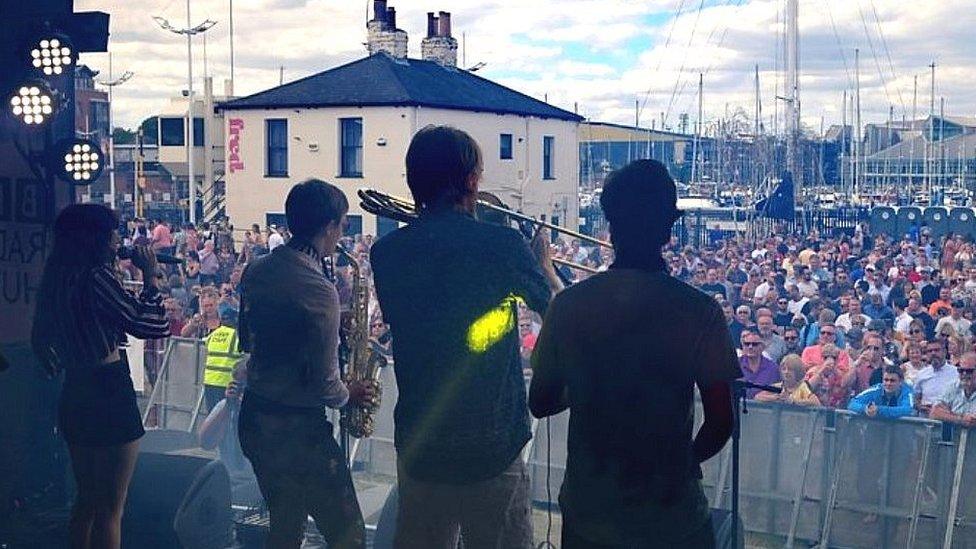
- Published22 July 2019
